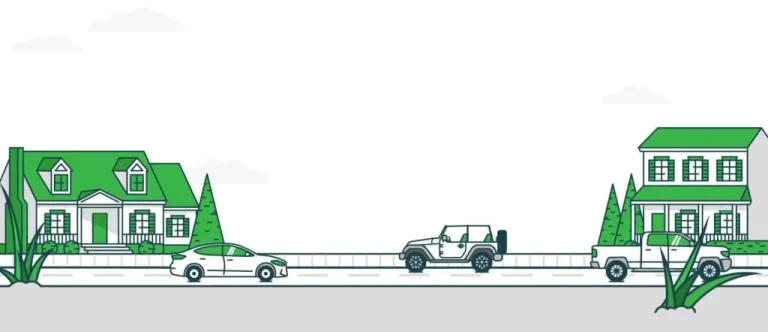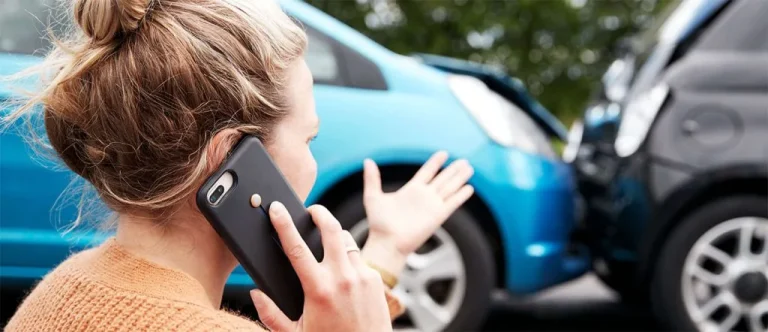Whether driving to Chicago for the weekend, heading to Springfield for your child’s history class field trip, or returning to Bloomington for school, it’s always essential to maintain the necessary legal car insurance coverage wherever you go in the Prairie State.
In Illinois, drivers must have at least $25,000 in bodily injury liability per person, $50,000 in bodily injury liability per accident, and $20,000 in property damage liability per accident, otherwise known as 25/50/20 liability coverage. Illinoisans must also have $20,000 in uninsured or underinsured motorist bodily injury coverage (UMBI/UIMBI) per person, and $40,000 UMBI/UIMBI per accident, as this coverage is included in all policies with the minimum liability limit.
Let’s look at how drivers are covered with UMBI/UIMBI on their Illinois auto insurance policies, what happens when drivers fail to carry this coverage, and everything else you need to know about the Illinois uninsured motorist coverage law.
Uninsured Motorist Coverage in Illinois Explained
Illinois vehicle auto insurance laws require all drivers to have a minimum of 20/40 UMBI/UIMBI, a facet of uninsured motorist coverage (UM). UMBI/UIMBI helps the policyholder cover their medical expenses should they be injured in an accident caused by an uninsured driver. The other aspect of Illinois uninsured motorist coverage that covers property damage is uninsured or underinsured property damage coverage or UMPD/UIMPD. This facet of UM isn’t legally required but may be beneficial to have on your full coverage auto insurance policy.
Since Illinois is a tort or at-fault state, at least one driver must be deemed at fault in every accident. This also means that residents must carry liability coverage, which helps the victim in an accident with an insured cover their medical expenses or property damage up to the insured at-fault party’s liability limit.
Suppose the at-fault party in an accident is uninsured, and they cause an accident with a policyholder who only has the minimum legal liability and UMBI/UIMBI coverages. In that case, the victim will only be able to use the 20/40 limit of their UMBI/UIMBI and will have to pay for their vehicle repairs out of pocket.
UM coverage, when it includes both UMBI/UIMBI and UMPD/UIMPD, is essentially the same as liability coverage, except it covers the policyholder instead of victims in an accident caused by the policyholder. With little or no UM coverage, you may be liable for all your expenses if you’re in an accident caused by an uninsured driver.
Is Uninsured Motorist Coverage Required in Illinois?
Yes, in Illinois, uninsured motorist coverage is required, but only the bodily injury aspect, or UMBI/UIMBI. Adding UMPD/UIMPD to your policy for full uninsured motorist coverage may be wise, but it isn’t legally required. Nearly 12% of drivers on Illinois’s roads lack sufficient insurance, so you have about a one in eight chance of getting into an accident with an uninsured driver.
If you don’t have the legally required UMBI/UIMBI, you may face legal penalties like fines or license and registration suspension. Not to mention the higher premiums you’ll have to pay once you become insured. Insurers view previously uninsured drivers as high-risk drivers and drivers who pose a higher risk of filing a claim with their insurer typically receive higher premiums.
Those who fail to maintain the legally required coverage must also file an SR-22 form. An SR-22 is a form your insurer files on your behalf with the government to validate that you have the legally necessary insurance coverage. While filing an SR-22 isn’t typically expensive, the form existing on your insurance record will automatically raise your premiums for years to come.
Why Does Illinois Require Uninsured Motorist Coverage?
Illinois uninsured motorist coverage, specifically the bodily injury aspect, is required because the state has a relatively high population of uninsured drivers. Nearly 12% of the drivers in the state are uninsured, which is on par with the national average.
When a state has a high population of uninsured drivers, there is a natural overwhelm to the insurance and court systems. Drivers who get into accidents with uninsured drivers file insurance claims or sue the uninsured drivers to recoup the costs of their medical expenses or vehicle repairs.
Mandating UM, or at least UMBI/UIMBI, incentivizes drivers to avoid legal repercussions by carrying this coverage.
Is Uninsured Motorist Coverage Mandatory in Illinois?
Yes, uninsured or underinsured motorist coverage in Illinois is mandatory, at least the bodily injury element. When binding a policy, drivers with the minimum required liability coverage automatically have the minimum UMBI/UIMBI limit required in the state. Drivers who fail to maintain the minimum amount of liability coverage and, in turn, the minimum amount of UMBI/UIMBI may face legal penalties like fines or license and registration suspension.
While maintaining the appropriate amount of UMBI/UIMBI is mandatory by law, it’s also just good practice. This coverage helps the policyholder cover medical expenses like hospital stays, ambulance rides, doctor’s visits, diagnostic tests, and other medical expenses incurred in an accident caused by an uninsured driver. If you’ve ever been to a hospital in America, you know that these medical expenses can tally up quickly, so maintaining sufficient UMBI/UIMBI is in your best interest as a driver and patient.
While UMBI/UIMBI is required by law, drivers may reject uninsured motorist property damage coverage in Illinois. UMPD/UIMPD is another component of UM coverage, which helps the policyholder cover any repairs to their vehicle if it was damaged in an accident caused by an uninsured driver.
Drivers with UMPD/UIMPD likely have a full coverage policy, as this coverage isn’t required by law. A policyholder who already has a full coverage policy with collision coverage may not need UMPD/UIMPD because collision coverage already works to cover any repairs the policyholder may need on their vehicle in the event of an accident, regardless of who was at fault. However, it’s always a good idea to consult your insurer about the coverage details on your policy before adding or rejecting any coverages.
Is Uninsured/Underinsured Motorist Coverage Necessary in Illinois?
Yes, uninsured/underinsured motorist coverage is legally necessary in Illinois, or at least bodily injury coverage. In Illinois, the uninsured motorist penalty can range from fines to license or vehicle suspension. Plus, if you’re ever caught driving without sufficient insurance coverage, insurers deem you a high-risk driver and raise your premiums for years to come.
In nearly every scenario, maintaining the legal minimum amount of coverage is more cost-effective than forgoing insurance entirely in the name of savings. The average full coverage policy in the state is about $1,500 annually, and a minimum coverage policy is only about $750 annually. If you do the math, that’s about $2 per day. While the initial shock of an insurance premium may be tough to wrap your head around, the cost is far less than the financial ruin associated with an at-fault accident as an uninsured driver.
How To Get an Illinois Car Insurance Quote
If you’re looking for a policy with adequate UMBI/UIMBI coverage or full UM coverage from one of the state’s top insurers, the best way to find a policy that meets your needs is to get and compare quotes. Getting and comparing quotes online is one of the fastest ways to find the cheapest rates in the state while still getting all the coverage you want.
Here at Clovered, quotes are our favorite thing. You can use our free quoting tool to compare policies from several insurers. If you prefer to get your quote from an agent or have questions about UMBI/UIMBI in the Prairie State, you can contact us at 833-255-4117 or agent@clovered.com.
The editorial content on Clovered’s website is meant to be informational material and should not be considered legal advice.




